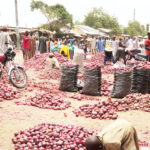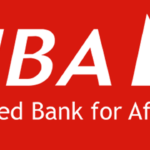Small business owners, traders, especially market women, have expressed worry over the high mortality rate of microfinance banks (MFBs) just as the Nigeria Deposit Insurance Corporation (NDIC) begins process to wind up 42 MFBs that failed recently across 17 states and the Federal Capital Territory (FCT).
The Central Bank of Nigeria (CBN) had revoked the licence of the failed MFBs in November 2020 just as NDIC recently began the customer verification process towards winding up the affected entities.
- Oil firm, foreigners, others top list of First Bank’s N228.6bn debtors
- With prayer, Nigeria will overcome insecurity – NCPC Boss
Some traders who spoke in Abuja were apprehensive over the rising cases of failed MFBs. Also badly impacted are women traders who are one of the biggest patrons of microfinance banks.
Musa Aliyu, a fruit dealer at the Fruit Market, Lugbe Abuja said he was scared of maintaining an account with any microfinance bank because a lot of them have failed.
“How much do I have that I will allow myself to lose in a microfinance bank? I will rather put my money in the big banks,” he said.
Joyce Maduka, a bread seller also in Lugbe said though microfinance banks help with small loans compared to the big banks, if they are failing, that is a problem for small depositors.
She said the government should pay attention to microfinance banks as they are helping small businesses.
Several other small traders expressed similar sentiments.
According to NDIC records, at least 145 MFBs have failed over the years. The breakdown shows that 103 were liquidated by NDIC earlier over insolvency issues.
However, recently, 42 others have been added to the list bringing it to 145 liquidated MFBs. Analysis of the recent 42 failed MFBs shows that they are distributed across 16 states and the Federal Capital Territory Abuja with Lagos having the highest casualty of nine, followed by Kano with seven failed MFBs, and Kogi with six.
Abuja and Akwa Ibom have three failed MFBs each while Kebbi and Imo have two failed MFBs each.
There is one failed MFB across 10 other states. They include Kaduna, Ogun, Osun, Anambra, Bauchi and Jigawa. The rest are Ondo, Adamawa, Rivers and Delta.
Each depositor in MFB is entitled to a maximum of N200,000 to be paid by NDIC when the bank liquidates.
As of 2019, data showed that NDIC had paid about N2.97 billion to 83,415 depositors of the earlier failed MFBs.
NDIC announced two weeks ago that it has commenced the verification and winding up of the 42 MFBs whose operating licences were recently revoked by CBN.
The first step is to verify their depositors, the corporation said in a statement by the Director, Claims Resolution Department, Mrs. Nurat Ajigbewu.
It said CBN revoked the operating licences of the failed MFBs since November 12, 2020. It requested the depositors to visit their banks from December 2 to 24, 2020 where NDIC officials would verify their accounts status and claims.
On December 24, 2020, there were no NDIC officials at two of the affected MFBs in Abuja when our reporter visited. A security official at Future Growth MFB, Utako in Abuja said he did not see the NDIC officials adding that the bank was closed in October and belongings evacuated.
When our correspondent asked the NDIC why physical verification had not commenced, Mr. Gbenga Fabuyi, one of the spokesmen at NDIC said he would get clarification but did not revert even after several reminders.
The Director of Corporate Communications, NDIC, Bashir Nuhu, also didn’t respond to messages sent to his phone on the issue.
However, a former deputy governor of CBN, Dr. Kingsley Chiedu Moghalu, said: “A significant number of microfinance banks were deficient in their understanding of the microfinance concept and the methodology for delivery of microfinance services to target groups.”
In his comments, Prof. Uche Uwaleke, a professor of Finance and Capital Market said, MFBs operate under a very harsh business environment characterised by inadequate power supply, transport, insecurity which increase their cost of operations.
“Undercapitalization is the bane of microfinance banks in Nigeria. Part of the solution is to prescribe new minimum capital requirements for MFBs which CBN has done by giving Tier 2 and Tier 1 MFBs up till April 2022 to recapitalize to a minimum of N50m and N200m respectively.”
He said CBN can include MFBs like commercial banks as participating banks in disbursing its interventions.
Still reacting, the National Association of Microfinance Banks (NAMB) supported the CBN licence revocation for the 42 MFBs.
The national president, Alhaji Yusuf Gyallesu, said the CBN action aligned with the association’s plan to conduct nationwide existence checks (membership audit) of MFBs.
He hinted that the leadership of the association was making arrangements to ensure that the proposed existence check of MFBs by the association is finalised in the first quarter of 2021 fiscal year.
Gyallesu, said with over 600 MFBs financially and operationally strong, customers should not entertain any fear about the safety of their deposits in the MFBs.

 Join Daily Trust WhatsApp Community For Quick Access To News and Happenings Around You.
Join Daily Trust WhatsApp Community For Quick Access To News and Happenings Around You.


